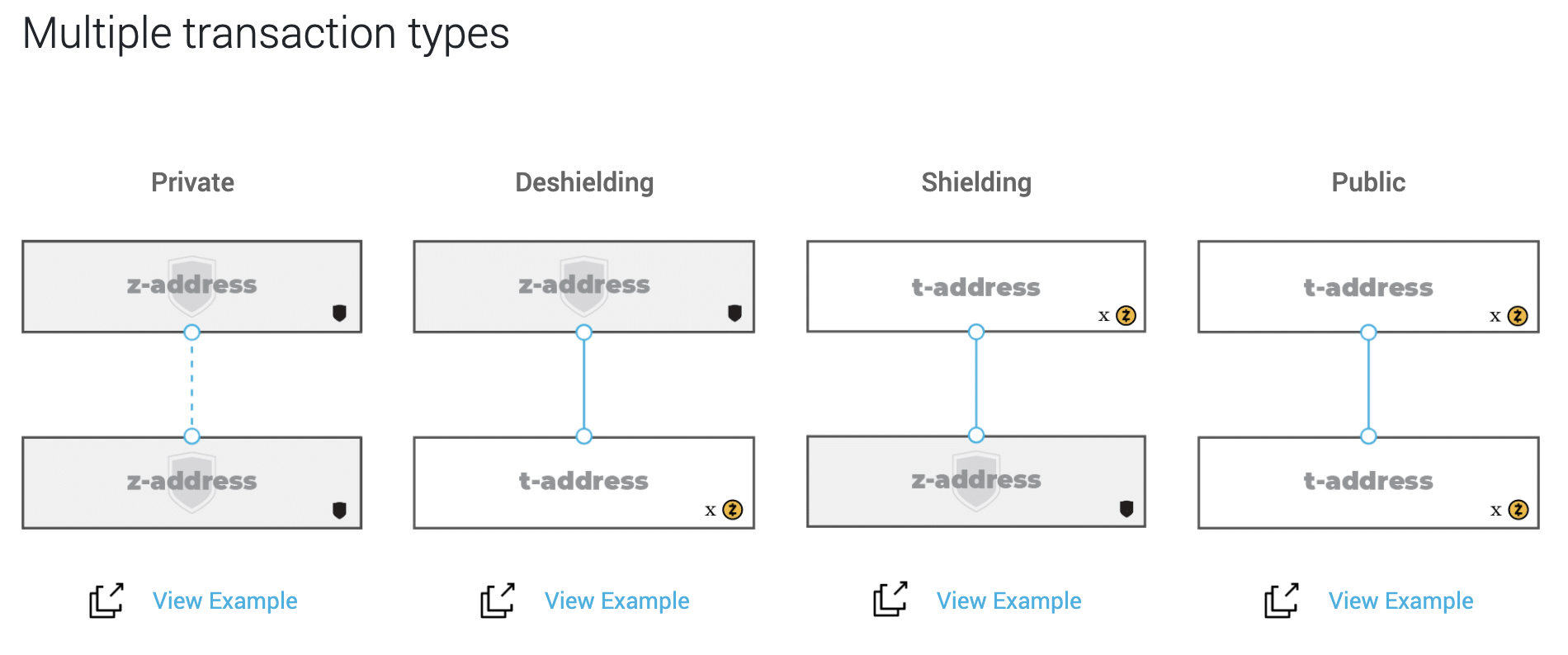Publicly announced transactions
When I talk to people about crypto, some think it’s private way to store and transfer money. They’re then shocked when I pull up my ENS address on Etherscan, show my few holdings and all of interactions I’ve had associated with that address.
This public infrastructure isn’t solely on Ethereum. It’s with nearly every cryptocurrency. The creator of Bitcoin noted this in the Bitcoin Whitepaper.
“Some linking is still unavoidable with multi-input transactions, which necessarily reveal that their inputs were owned by the same owner. The risk is that if the owner of a key is revealed, linking could reveal other transactions that belonged to the same owner.” - Satoshi Nakamoto
When people learn of this, most shrug and move on. They continue to add funds to their portfolio and hope for large returns. There’s nothing wrong with that.
But, not everyone in the world is as lucky. Some people have to use cryptocurrencies as a means for daily transactions. They use it because their central government has failed them. They use it because their governments are sanctioned by foreign powers, which results in economic collapse, primarily hurting the working and middle classes.
The peer-to-peer money system is a god-send
12 countries are currently living over 20% inflation. The populous see the value of their savings and wages diminish, and they have limited options. That trend can become worse.
An even harsher example is when citizens are victims of sanctions, or worse, war. Palestinian civilians are living through an economic disaster. Outside investment in Gaza has dropped from 11% to 2% in the last 20 years. Wars between Israel and Hamas has resulted in 90% of the areas factories in being shutdown. Unemployment is skyrocketing, and, 1 in every 2 Gazans are living in poverty.
They’re using cryptocurrency to fight back. Gazans are leveraging Bitcoin to transact with their families abroad, and also their daily transactions. Why? P2P solutions like Paypal and Venmo don’t exist in Gaza.
They don’t exist in many parts of the world. People living in these situations will continue to use cryptocurrency to transact with their families abroad, and for their daily interactions. It’s their path towards financial freedom.
But, the risk of a centralized bad actors creating a mechanism to trace cryptocurrency transactions remains. The threats of a modern surveillance state are more real than ever. China, an economic superpower building much of the world’s infrastructure, is using technology to aid its genocide against the Uyghur religious minority.
And while we (the West) look at this as a foreign problem, we need to leverage technologies that prevent it from ever happening. Even if the risk associated, relative to the outcome, is miniscule.
Anonymous cryptocurrency use is an amazing start, but as governments become increasingly aware of cryptocurrencies and their relative blockchains, we’d be naive to think they won’t create surveillance mechanisms attempting to link financial transactions to users. Our sovereignty would be lost.
So we need to ask ourselves. Do we care about privacy?
Zcash, a private blockchain
Zcash is a digital currency that has four different transaction capabilities. Among those capabilities, is a true peer-to-peer private transaction method, and a private way to store funds. From it’s website:
Zcash is 'the 'https of blockchains,' protecting your freedom to save and spend as you like. Zcash was the first project to implement zk-SNARKs, a novel form of zero-knowledge cryptography that gives its users the strongest privacy available in any digital currency.

While Zcash comes with its criticisms, we should remain hopeful that they succeed. Privacy can be a means to greater liberty and personal security. Thus, the need for a cryptographic protocol with privacy at its foundation is apparent.
“If we succeed at fixing the infrastructure, then what we get is that the culture and the norms that we all currently share … survive,” said Zooko Wilcox, founder of the zcash privacy coin. So maybe just “Avoiding the China Scenario” is enough of a win. - Jeff Wisler, Coindesk
Not bullish, but hopeful
I’ve always seen Zcash as an interesting project. I care about privacy, Zooko has always seemed a genuine person in interviews, and the tech has a lot of interesting properties.
But, my interest, and hopefulness for the project’s success, was never realized until Zcash’s Grants Committee announced it would be funding a proposal to build a decentralized finance (DeFi) protocol for shielded (private) assets on Zcash.
This could create a mechanism for users to move cryptocurrencies to a private blockchain. Think Bitcoin, Ether, USDC, DAI, and others assets utilizing the privacy capabilities that the Zcash enables.
Through this mechanism, the other core features of decentralization could be built. DAOs, NFTs and other financial protocols would be able to exist as a part of the Zcash ecosystem.
Hedging against authoritarianism
The result of this? The freedom to use crypto assets on a private blockchain, giving users a more secure path to financial sovereignty. Protecting users against the malicious intent of centralized organizations, thus creating a global peer-to-peer network hedging against authoritarianism.
There are other exciting things on Zcash’s roadmap, like its move from Proof-of-Work to Proof-of-Stake. But, the one I’m most hopeful for is a cryptographic weapon against the surveillance state. One that gives us the ability to transact, save, lend, or borrow in a private and sovereign manner.
Much work needs to be done, but I’ll remain a hopeful supporter of shielded assets and the future of Zcash. We should all be.